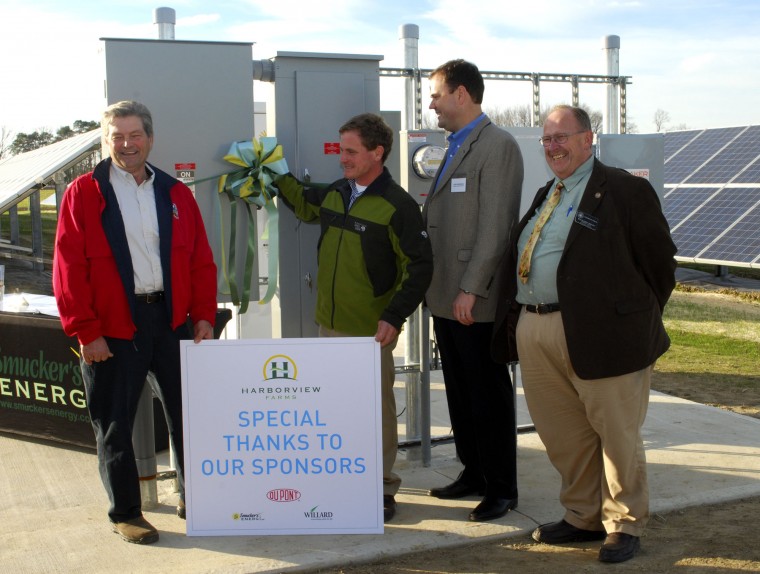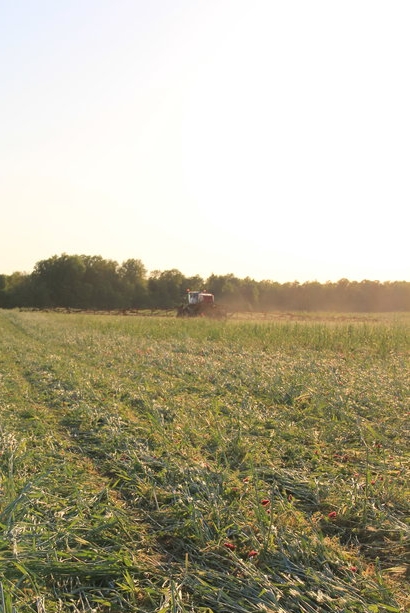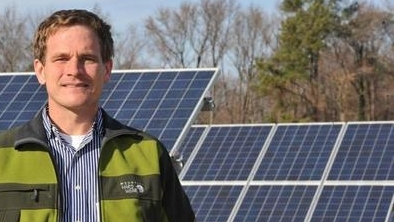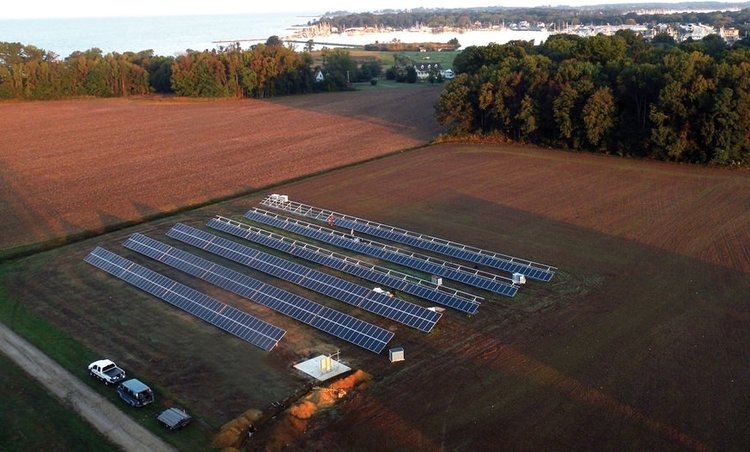ENVIRONMENTALIST
Solar Initiative
Our solar installation is just the next step toward the future of farming. At Harborview Farms we have two solar arrays on a one-acre plot. The first and larger of the arrays was designed and installed by Smucker's Energy, LLC on December 6, 2012 and the second smaller array was installed by Sunrise Solar, Inc. using panels designed by Motech Industries, Inc. We collaborated with DuPont Solutions to use its Tedlar® polyvinyl fluoride (PVF) films for the backsheets on the panels. Tedlar® polyvinyl flouride (PVF) film-based backsheets give the solar panels that we use protection from the elements even beyond their expected 25 year lifetime. The solar arrays are rated at 200,000 and 100,000 kWh, respectively and are capable of producing nearly 390,0000 kWh of energy every year. That is equivalent to the amount of energy used by more than 400 houses in the state of Maryland based on information from the Energy Information Administration (EIA). The combined systems will provide enough electricity for not only our entire grain system, but our office spaces as well.
“The solar panel installation is just the latest example of what [Harborview Farms] is doing to embrace and exemplify responsible farming practices that benefit the environment, the community and future generations.”
— Solar Builder Magazine
Why Solar?
More than 90% of the electricity produced in the state of Maryland comes from nonrenewable sources like coal, natural gas, and nuclear power plants (MSA). We think it is important to reduce our dependence on these sources and look ahead to more sustainable sources for the energy we use. Solar power is simply a continuation of our commitment to responsible production. By choosing to produce electricity through solar panels we not only reduce our dependence on these sources of energy, but negate the Nox, SOx, Carbon, and Particulate Matter Emissions that would normally be produced to power our farm annually. These pollutants contribute to the production of smog, acid rain, and presence of heavy metals in the environement. These are the same pollutants we seek to reduce by using equipment that meets strict emissions standards. Reducing the production of these pollutants is particularly important for us as these pollutants impact the production capacity of our agroecosystems and the ability of the Chesapeake Bay and its tributaries to function properly.
How it works
Our farm is grid-tied, meaning that even though we produce solar power, we are still connected to all of the power transmission facilities that would normally provide us with power. Whenever our energy needs exceed the power produced by our panels, we draw power from power plants. When it is sunny or our energy production exceeds our needs, power flows from our panels back to the transmission facilities and then to other businesses and homes in the state. When this happens the powerplants do not have to produce quite as much energy and are able to use fewer resources on that particular day. The grid is a highly efficient way to "store" energy produced by natural sources like solar and wind power because at any given time, some regions are able to produce more energy than that is using, allowing excess energy to be distributed to areas whose energy needs exceed their production capacity due to clouds, unexpected energy use increases, or lack of wind.
Water Management
Water is an incredibly important resource for us all. It impacts everything from the soils we use daily to the rivers and streams that we get to enjoy every day. Preserving high water quality should therefore be a high priority for everyone. We do many things around the farm to preserve water and water quality. To conserve water and energy, we recently installed an 11,000 gallon rain barrel that collects the water that comes off of the roof of our shop to dilute our chemical mixes to their proper concentrations. Protecting water quality requires protecting against point source pollution and chronic pollution. Point source pollution is caused by single events, like spills that release a relatively large amount of a chemical, resulting in low water and environmental quality for native species. We protect against against these types of events by placing 6 inch curbs around the perimeter of our chemical shed, our fueling/wash pad, and oil storage areas to contain spills that can then be cleaned up and disposed of properly. Chronic pollution is the result of many small pollution events over a long period of time (months and years) that cause an accumulation of the chemical or chemicals in an area that can damage the quality of the water and environment. Sloping the floors of these waste sites to direct the flow of liquids towards drains that filter the water before it gets flushed back into the drainage ditches at the home farm. One of our goals for the future is to have an on site bioreactor capable of treating our waste water more effectively to really make sure that the water we are putting back into our agroecosystem is clean and safe.








